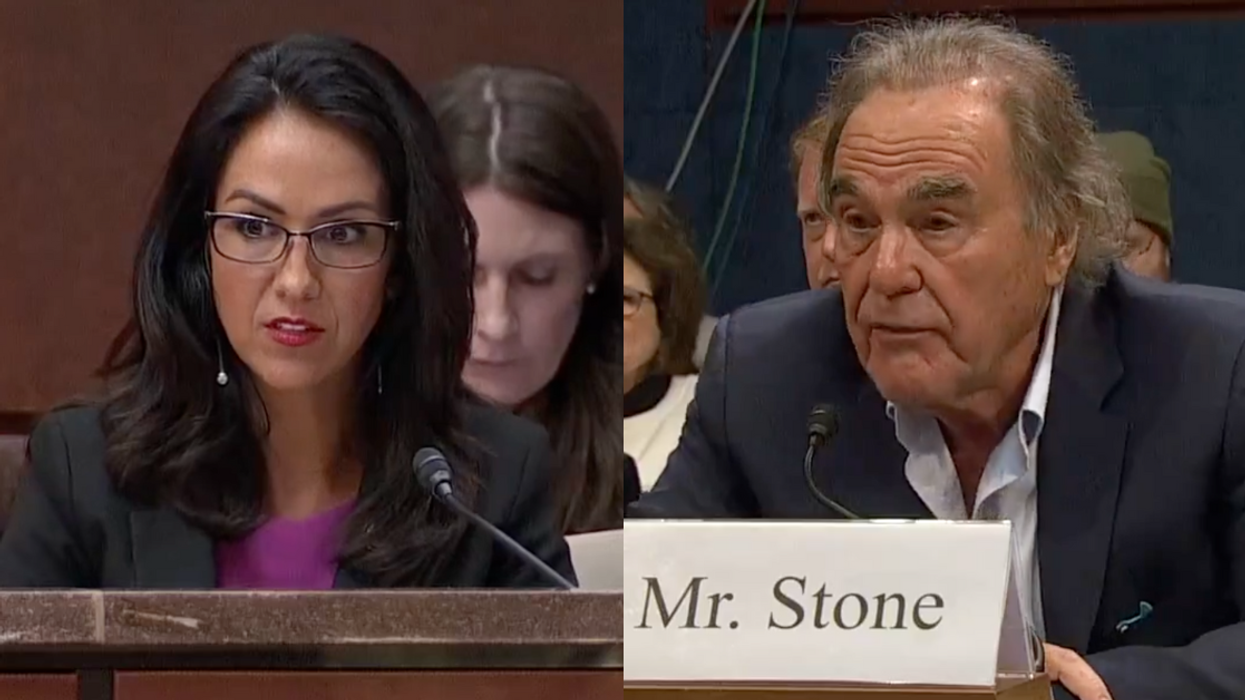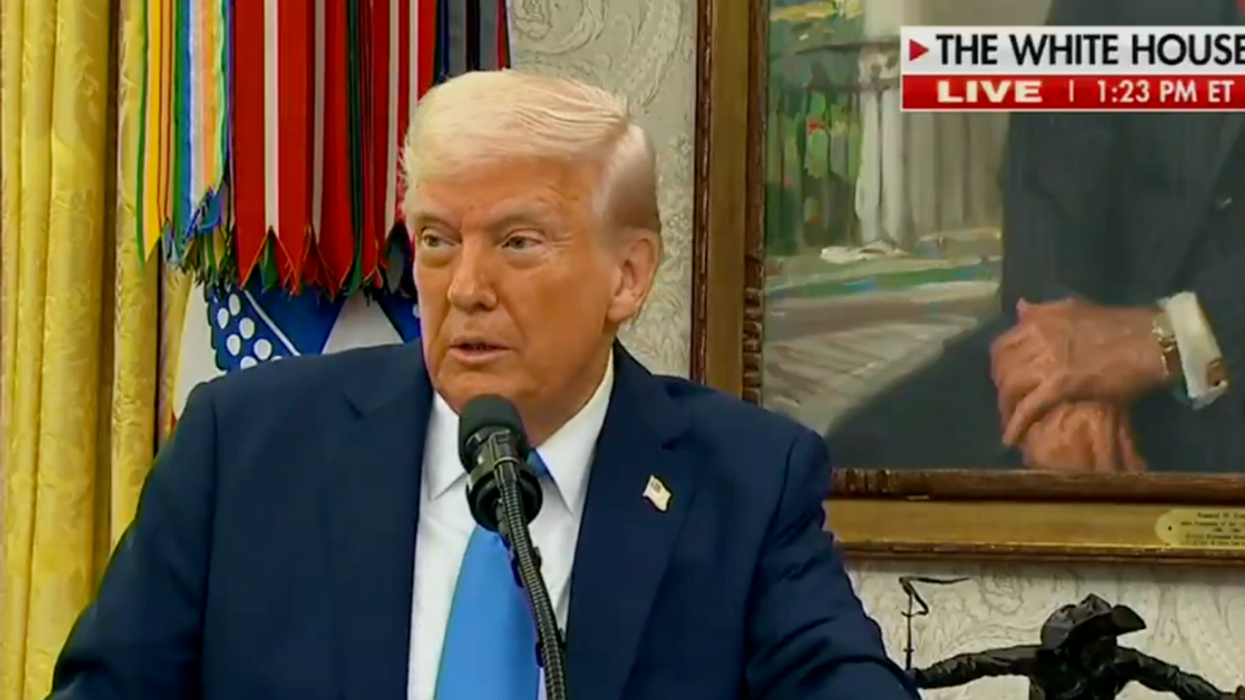Colorado Republican Representative Lauren Boebert hit a new low after she attempted to grill director Oliver Stone—the director of the classic 1991 political thriller JFK—on some of his views on the assassination of JFK, only to have colleagues point out that she'd mistaken him for Roger Stone, a former adviser and strategist to President Donald Trump.
The hearing—held in response to last month’s release of 80,000 pages of documents by the Trump administration related to the 1963 assassination—took an awkward turn when more than halfway through the hearing, Boebert brought up a book Roger Stone wrote, which alleges that former President Lyndon B. Johnson played a role in former President John F. Kennedy’s assassination.
Addressing Oliver Stone, she said:
“Mr. Stone, you wrote a book accusing LBJ of being involved in the killing of President Kennedy. Do these most recent releases confirm or negate your initial charge?”
Looking puzzled, Stone turned to fellow witness and author Jefferson Morley before responding to Boebert, “No, I didn’t.” He clarified that while his film suggested President Lyndon B. Johnson may have been involved in covering up aspects of the case, it did not accuse him of orchestrating Kennedy’s assassination.
Eventually, former Washington Post reporter Jefferson Morley realized Boebert's error and when Boebert called on him, he said:
"I think you're confusing Mr. Oliver Stone with Mr. Roger Stone. It's Roger Stone who implicated LBJ in the assassination of the president, not my friend Oliver Stone."
Noticeably flustered, Boebert replied:
"I may have misinterpreted that and I apologize for that. But there seems to be some alluding of incompetence or some involvement there on the backend. Not accusing you—sorry, I'm going to move on."
You can watch what happened in the video below.
Boebert was swiftly mocked.
The hearing was chaired by Florida Republican Anna Paulina Luna, who is unconvinced of Lee Harvey Oswald being the lone assassin and who praised the hearing as a "historic day in our nation's history."
She framed her efforts to uncover the truth behind the 35th president's death as essential to preventing such an event from happening again.
However, despite the release of thousands of pages of documents, scholars have yet to find new evidence contradicting the Warren Commission’s conclusion that Oswald acted alone when he assassinated President Kennedy in Dallas on November 22, 1963.








 AMC
AMC







